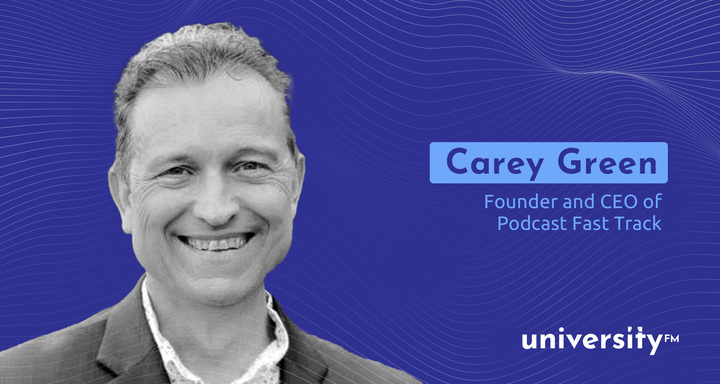What makes a great podcast? Turns out, there are lots of factors that can influence whether a podcast show will be successful or flounder before sputtering out.
Beginners often focus on a single element to maximize their chances of winning the podcast market (or at least the market for their niche).
Let’s go over the 10 most important elements you need to focus on to succeed with your podcast. Following these doesn’t guarantee success. However, they will help you create engaging content that has a great chance to earn loyal listeners over the long term.
A Good Why or Reason for Existing
For starters, anyone looking to put together a podcast that can be successful over the long-term needs to have a good reason. Making one just for the heck of it is unlikely to draw the audience and be particularly effective or entertaining.
This isn’t to say you need to have an ironclad mission statement where you talk about only one thing every episode. But you should have at least a general idea about the kind of content you’ll be producing and what the why of your podcast is.
The good news is that your why can be as broad or specific as you desire. You can do a podcast just on marketing as a general topic, or you can do a particular type of marketing.
You can do an ultra-specific podcast on just your business or online brand. Or you can do a podcast on something as broad as fantasy literature.
It’s all up to you. Just make sure you have a reason for making your podcast, which will help you put together content in the future.
Engaging Content
You’ll need to come up with a great content plan and produce meaningful or entertaining content in every episode. No one wants to hear someone ramble about the weather or the new shoes they bought, no matter how sultry their voice or how charismatic their temperament.
Most people who start a podcast have a few great episode ideas ready to go but quickly start to run out of steam when they get to their fourth or fifth episode. We would recommend writing down a plan for at least a dozen episodes before you start producing your first.
Make it so that every episode is packed full of content that people will want to listen to. This can be practical advice, your professional opinions on something, or meaningful discussions with another visitor or a cohost. Don’t fill the proverbial airwaves with idle talk; say something meaningful!
Novelty
You should also try to keep your episode format relatively novel from time to time.
Let’s say you do a true-crime podcast. This is one of the most popular procedural or formulaic podcast varieties out there.
Almost every episode will be a rundown of a true-crime. Some would be detailing a new aspect of the given crime for the season. This can naturally become a bit repetitive so you want to vary your content from time to time.
You can invite cohosts or new guests to keep the conversation fresh or following a different format for your content schedule. For example, doing a deep dive into one aspect of a true-crime case in the above example for one episode, then doing an interview for another episode.
It might also be smart to do special episodes that come out every once in a while. TV series do this all the time with holiday episodes or special event episodes; you can copy this idea for your podcast to great results.

Personality
Every great podcast has a host with a likable personality. You should work to develop a personality for your podcast that’s both entertaining, and that works for your subject matter.
Naturally, this means you’ll need to think about what type of content you’ll be producing. A cooking podcast can be light and fun; a podcast based on economics or the stock market needs to be a little more academic, or at least information-heavy.
Incorporate your content tone requirements into your personality so that you’re a great host for your podcast. Chances are you’re already putting together a podcast based on your own personal likes or dislikes.
Lean into those and craft a “show persona” that people enjoy listening to, whether that means lightning things up with a few jokes or adopting a different voice that you use specifically with your recording equipment.
It might also be helpful to adopt a hosting partnership, where one of you place the straight man or woman to the wackier half of the hosting pair. Having some personality differences across your episodes is sure to keep things engaging in fresh over the long-term.
A Great Podcast Name
Don’t discount the name of your new show! The title is the first thing that most people will see when they browse your episodes.
As such, it follows the same advice that any other piece of creative content does. The name needs to be:
- catchy or engaging
- at least somewhat informative as to the show’s content or theme
- memorable, so likely shorter rather than longer
We’d recommend keeping your general podcast name (not counting the names of your individual episodes) short and to the point. This way, people will be more likely to remember it and reference it to their friends.
It might take you quite a bit of time to think up an ideal podcast name for your show. Don’t worry! This is a normal part of the process. All the time you spend on your title will be well worth it when people don’t scroll past your show in their search for something more eye-catching.
Catching Episode Titles
Similarly, always try to name your episode titles something unique or informative. Episode Number 101 doesn’t tell a potential listener anything about the episode content without them having to dive deep into a summary.
Depending on where you post your podcast, there may not even be a summary box for you to give a potential listener more information.
Your title is an opportunity to tell a potential listener exactly what’s going to happen in a given episode or at least catch them up to speed on the season’s current focus or theme. Episode 101 titled, “How to DIY a Tire Change” is a lot more informative and is much more likely to draw a click from someone looking for a solution to exactly that problem.
You can even get super creative with this. Name all of your titles along a similar theme or foundation, like “The One With…” and so on. This not only makes your podcast episode titles more memorable but also helps to distinguish you from all the other content creators on the web.
Regular Scheduling
You should prioritize keeping a regular podcast schedule that you can maintain over the long-term.
It’s tempting to promise your listeners that you’ll have a new podcast out every single week or even every few days. But very few podcast producers can maintain this workload while achieving a consistent level of quality.
We would recommend, especially when just starting out, to keep your schedule promises to a minimum. One podcast a month or every few weeks is a much more sustainable work cycle and will let you build up to a better content model and streamlined production schedule.
The key is keeping everything consistent. If your regular listeners know that they can expect a top-tier podcast episode from you every month on such and such day, they’ll be more likely to tune in and make your podcast a regular part of their listening routine.
Podcasts that update irregularly are more often forgotten or are left in favor of more regularly updated content.

Proper Length
In addition to the above, you can make a great podcast show by figuring out the ideal length for your episodes.
Podcast episodes from other creators can range in length from anywhere between a few minutes long to up to an hour or even longer. It all depends on the format and the subject being discussed. But just because you can make a podcast that lasts for three hours doesn’t necessarily mean you should.
Consider the type of content you’re producing. Is your podcast informative or entertaining?
Informative podcasts can be long or short depending on the problem they are solving are the info they are dishing out. Entertaining podcasts are usually shorter rather than longer, as people normally listen to them for a digestible piece of entertainment away from their regular lives or will binge multiple episodes in rapid succession.
When starting, it’s a great idea to keep your length relatively short so you can handle the content production requirements. Then you can crank up your episode length as you get more experience. But you never want to make your episodes too long so that you begin dropping listeners over time.
Audience Understanding
To make a successful podcast, you need to understand your audience as much as you can. We’re not talking regular market research in terms of statistics or even raw data (although both can help depending on the content of your podcast and its niches). What we mean is understanding what a potential listener might seek to gain from your episode and tailoring your efforts that way.
Say you want to make a podcast about building your own computer. If you were trying to find a podcast that could teach you how to put together a PC, what kind of content would you look for?
- Short, sweet, and to the point?
- Something that’s longer and goes into more depth?
- Something more discussion-oriented where the host invites guest speakers to debate about the merits of building your PC in the first place?
All of these are valid ideas and might make a great PC building podcast by themselves. But only one of them will be the most successful out of all three. It’s up to you to make the subjective decision about which one you’ll prioritize.
Really try to dig deep into the head of a potential listener and understand your audience. As a bonus, practicing this regularly can help you come up with content ideas if you are hurting for topics or episode themes.
Good Equipment (For Some)
Finally, successful podcasts normally utilize high-quality equipment, whether it’s just a top-tier microphone or a full sound suite, with a microphone, several speakers, a properly sound insulated stage, and plenty of audio editing equipment.
It’s no secret that you can make a decent podcast for pretty cheap, particularly if you get good materials from budget sources. But you can also boost your podcast quality by purchasing top-tier equipment. Everyone sounds better with a high-quality microphone at their mouth instead of a phone speaker.
However, don’t necessarily splurge and spend $1000 on a new podcast editing station when you’re starting out. It’s understandable and acceptable to begin with a more budget-friendly approach as you feel out the podcast format and figure out your style. No one makes it super big right after beginning their podcast.
A good strategy is to save up money and gradually increase your podcast equipment quality or studio size as you become more successful.
Conclusion
Ultimately, there are plenty more factors than the ones described above that can dictate whether or not your podcast will be a successful venture when all is said and done.
There’s no guarantee that your podcast will become a major hit, even if you do everything right, including following the above tips. But there’s no doubt that the elements we discuss most commonly separate podcast winners from losers.
Good luck; we’ll be listening for you!




